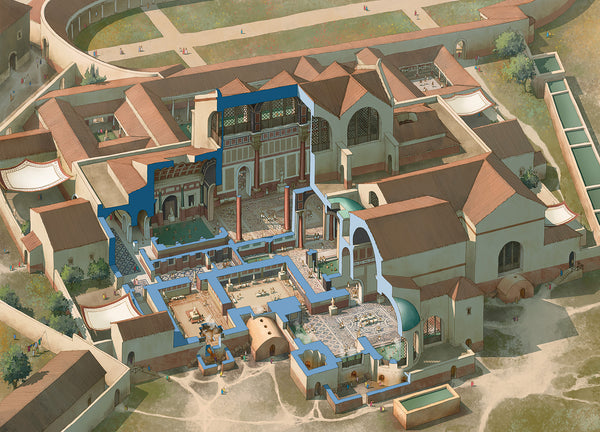Josiah Osgood Recommends Five Books on Roman History
I am a historian of Rome who writes about the end of the Republic, the age of Augustus, and the early empire. I have always loved narrative history, a form that ancient writers such as Tacitus raised to a high art. One of my favorite authors is Edward Gibbon, whose Decline and Fall of the Roman Empire is endlessly enjoyable. With Gibbon, not only do you get a vivid narrative, he also crafted highly opinionated footnotes that enhance his satire. Here I share some books that have helped me a lot in my recent research and teaching. These would add to anyone's understanding of the later Roman Republic.
Barry Strauss, The Death of Caesar: The Story of History's Most Famous Assassination (New York: Simon & Schuster, 2015)
This book gives a gripping account not just of the conspiracy to kill Caesar but the build-up to it and the aftermath. An expert in military historian, Strauss adds new insights about such topics as the weapons used to kill Caesar and the war that broke out in Italy soon after the assassination.
Fred K. Drogula, Cato the Younger: Life and Death at the End of the Roman Republic (New York: Oxford University Press, 2019)
Drogula has written the first major biography in English of Cato the Younger, Julius Caesar's greatest foe in politics. After his death, Cato was turned into a glorious martyr. Drogula's account is a bracing corrective that reveals a lot about Roman politics.
Kit Morrell, Pompey, Cato, and the Governance of the Roman Empire (Oxford: Oxford University Press, 2017)
This is a fascinating study of Cato the Younger as a reformer that also revises our understanding of another major figure of the age, Pompey. Morell's book shows Roman politicians successfully dealing with some of the big problems of the day and is a good rejoinder to those who think the Republic was bound to fail.
Elizabeth Rawson, Cicero: A Portrait (Bristol: Bristol Classical Press, 2001 reprint; also available in earlier editions)
Few books give so rounded a portrait of Cicero as this one by Elizabeth Rawson, who had a formidable knowledge of both Roman politics and philosophy along with a good eye for social history. A line from Rawson about Cicero's philosophical work The Tusculan Disputations captures much about the man: "the most sensitive and emotional of beings is trying to persuade himself into the serenity of the Sage."
Adrian Goldsworthy, The Roman Army at War: 100 BC – 200 AD (Oxford: Clarendon Press, 1996)
A classic in the field, this book gives an excellent feel for the Roman legions as a fighting force, from the age of Caesar onwards. Through careful study of what ancient sources say about the general, the unit, and the individual soldier, Goldsworthy powerfully explains why the Romans succeeded in war.

Josiah Osgood's next book, Lawless Republic: The Rise and Decline of Rome (ISBN: 9781399811552), will be published by Basic Books in 2025.
Described by the publisher as a narrative history of "the erosion of law and order in the last years of the Roman Republic through the rise and fall of its most famous lawyer, Cicero ... [that] vividly resurrects the spectacle of the courts in the time of Cicero and Caesar, showing how politics trumped the rule of law and sealed the fate of Rome".

